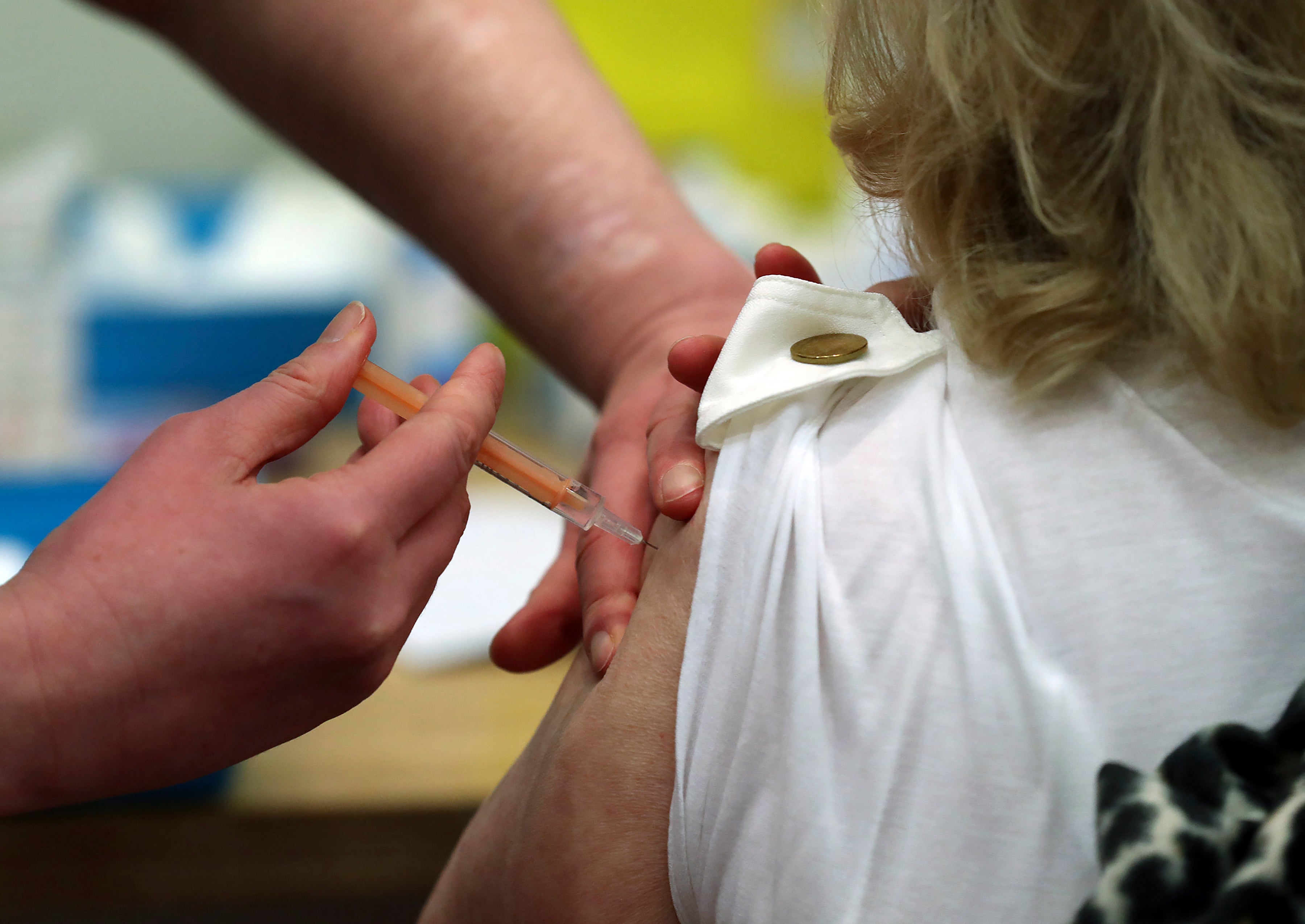Government fuels confusion about vaccine targets by refusing to define ‘the end of spring’
'How long is a piece of spring?': Over-50s left guessing about when they will get the jab

Your support helps us to tell the story
From reproductive rights to climate change to Big Tech, The Independent is on the ground when the story is developing. Whether it's investigating the financials of Elon Musk's pro-Trump PAC or producing our latest documentary, 'The A Word', which shines a light on the American women fighting for reproductive rights, we know how important it is to parse out the facts from the messaging.
At such a critical moment in US history, we need reporters on the ground. Your donation allows us to keep sending journalists to speak to both sides of the story.
The Independent is trusted by Americans across the entire political spectrum. And unlike many other quality news outlets, we choose not to lock Americans out of our reporting and analysis with paywalls. We believe quality journalism should be available to everyone, paid for by those who can afford it.
Your support makes all the difference.Downing Street has added to confusion about its target for vaccinating over-50s by refusing to reveal its definition of the end of spring.
Ministers have set a precise deadline of 15 February to offer jabs to all of those in the top four priority groups - over-70s, health and care staff and people with certain health conditions.
But the government’s delivery plan only speaks about the next group - those aged 50-70 and others with health conditions which put them at higher risk of disease - being protected by “spring”, and vaccines minister Nadhim Zahawi today declined to name a date
“We will set out our target after we have hit our February 15 target,” he told BBC Breakfast.
Boris Johnson’s official spokesman confirmed that “we will ensure that all those in the first phase receive their first dose by the end of spring.”But when reporters pressed him to define exactly when spring ends, he refused to put a date on it.
The spokesman was asked whether Downing Street was working on the astronomical definition of spring, which identifies the solstice of 21 June as the first day of summer, or had some other date in mind, such as the end of May - seen by many as the moment when spring ends.
“We’ve said that it will be by the end of spring,” he replied.
Asked whether that meant by June, he said: “It’s by the end of spring.”
But what does the end of spring mean, he was asked, responding: “It means the end of spring.”
One exasperated reporter at the regular Westminster media briefing resorted to asking: “How long is a piece of spring?”
NHS England chief executive Sir Simon Stevens has previously said the aim is for all over-50s and those at risk to be vaccinated by the end of April.
But former cabinet minister Karen Bradley recently told a Commons committee that the civil service definition of spring lasted "until the last day in July that Parliament sits".
Mr Zahawi said he expected groups 5-9 in the first phase of the vaccination programme to be offered jabs “very quickly” after the completion of the first four groups in mid-February.
But he cautioned against trying to work out the target date by extrapolating from vaccination rates so far.
“You can do the maths,” he said. “We did 600,000 in a single day – the deployment infrastructure that we’ve built can do as much vaccines as we get supply, so the limiting factor will be vaccine supply.
“You can see that in the next 10 or so days, we’ve got to do another almost touching five million and so if we keep that rate up, we will very quickly go down the list of the top nine.”
Asked whether that meant it would take another 35 days from 15 February to have jabbed all 31 million people in the first nine cohorts, he replied: “That assumes the supply, so I don’t want to commit to a date without going through it with a very fine-toothed comb with the whole team, because our limiting factor is the supply of vaccines ultimately.
“With any manufacturing process, especially one that is new, there are challenges around that, as we’ve seen in Europe and as we saw in the early days in the UK as well.”
Join our commenting forum
Join thought-provoking conversations, follow other Independent readers and see their replies
Comments